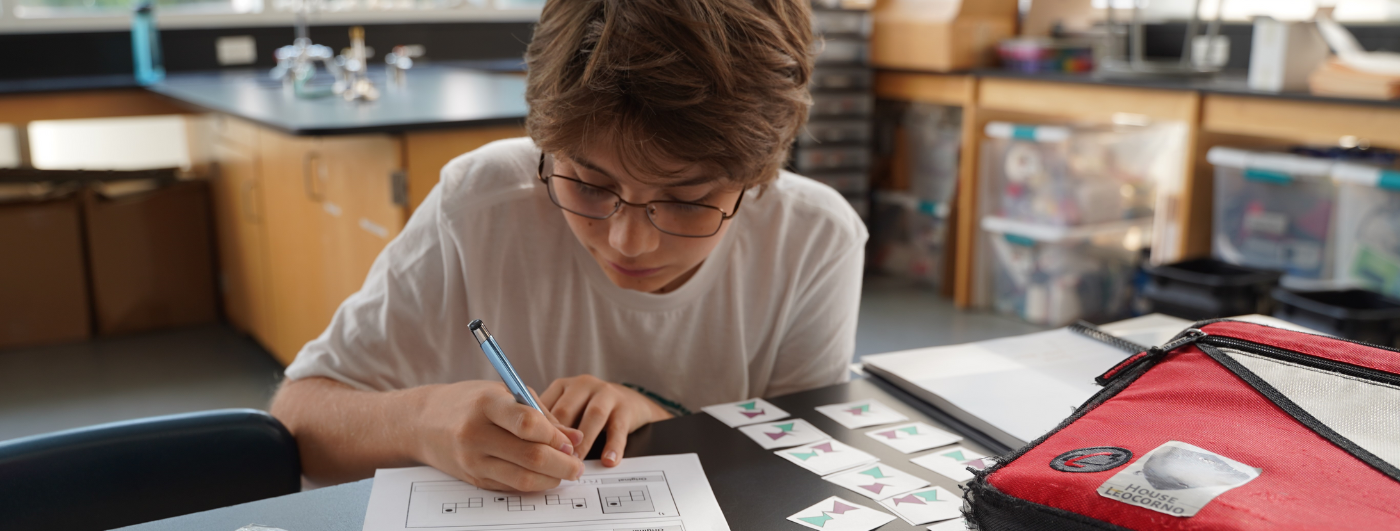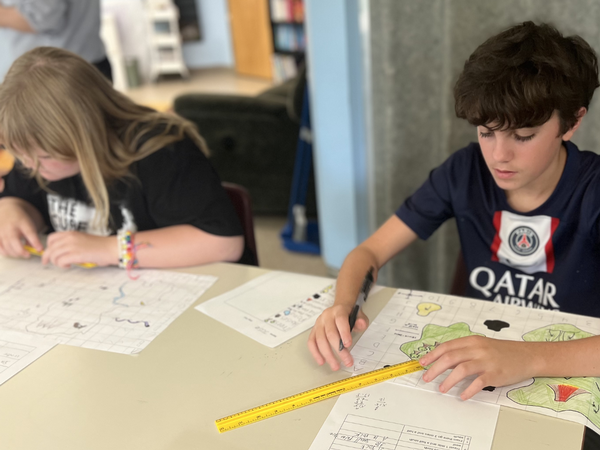Empowering students with language-based learning differences

Siena Blog



The Siena School Blog
Discover, Learn, Celebrate, and Empower
Welcome to Siena's blog, your source for helpful, cutting-edge resources tailored to teachers, parents, and other advocates in the learning differences community. We are dedicated to providing a wealth of curated knowledge spanning various topics, ranging from dyslexia advocacy and awareness to classroom teaching strategies, heritage month profiles, and social and emotional health.
Discover innovative classroom strategies that inspire creativity and foster a love of learning.
Our commitment to social-emotional wellness ensures that we provide valuable insights into healthy student development and self-advocacy.
Discover resources, reading and podcast recommendations, volunteering opportunities, and more for parents in the LD community.
Our important heritage month posts highlight key people, offer reading and podcast recommendations, and more.
College Prep Begins in High School

Avg. read time: 3 min.
Without the guidance of teachers and the Siena community, I wouldn’t have developed the skills and tools necessary for success. - Ozzie, Siena Class of ‘24
A high school curriculum tailored to LD students’ needs is especially important in offering an academically rigorous, supportive learning environment.
We’re taking this opportunity to highlight what Siena offers as part of our regular high school curriculum—such as counseling, test preparation, and overall college readiness—to best prepare our students for their next academic step.
Siena’s high school program at our campuses in Silver Spring, MD, and Oakton, VA, focuses on our mission and supports our high school students and families in various ways.
Preparing High School Students for College and Future Careers
A cornerstone of Siena’s high school curriculum is the multi-year college counseling program and dedicated college counselor and internship coordinator. These deliberate curricular choices guide students through all four years of high school to break down the process of applying to and then attending college.
Highlights of our scaffolded program include:
- Specializing in sciences, arts, or other areas of strength to pursue a particular field of interest in a deep, thoughtful, and rigorous manner
- Exploring potential colleges and majors and making the most of visits from college reps
- Participating in a robust internships program that allows students to follow a field or job opportunity of interest for each year of high school
- Following a structured application timeline with individualized support at each step
- Preparing for standardized tests and guidance on how to help students stand out in their applications
- Writing and revising college application essays as part of class
- Receiving merit scholarship offers (For example, Siena's Class of 2024 was offered $6,704,800 over 4 years in merit scholarships by the various colleges they applied to.)
- Guidance on selecting a supportive learning center at the college level
Such intentional design embeds opportunities for students to explore the interests they are most passionate about in high school. In addition, this develops their overall college preparedness, ranging from how to approach a writing assignment to requesting accommodations and using faculty office hours.
By the end of 10th grade, I [...] had developed strong relationships with both my teachers and peers. This made it easier for me to manage my workload with all the support around me and it made me stretch myself into other opportunities offered by Siena. - Jude, Siena Class of ‘24
College Prep and Admissions Resources
Families wanting to ensure college preparedness can review some recent articles on current college admissions trends, such as:
- Campus to Career Crossroads (2024)
- College Data (2024)
- College Matchpoint 2024
- College Matchpoint 2025
- Passion Prep (2024)
- Top Tier Admissions (2024)
These and other resources typically outline some key skills colleges look for in their applicants, such as collaboration, social awareness, and leadership.
Dyslexia Resources for Families
Families in the LD community can read some recent blog posts about dyslexia, including Dyslexia Reading and Podcast Recommendations and Building Confidence in LD Students.
The Siena School, a national leader in dyslexia education, serves bright, college-bound students with language-based learning differences on DC Metro area campuses in Silver Spring, MD (grades 3-4 and 5-12) and Oakton, VA (grades 3-12).
Colleges Want Strong Applicants: What are They Looking For?

As high school students adapt their admissions profiles to what colleges are looking for in 21st century learners, it’s increasingly important for them to adopt appropriate work habits now. A recent piece in The Harvard Gazette examines some key traits—such as “self-awareness, curiosity, diligence, perspective-taking, social awareness, and collaborative skills”—that admissions offices are privileging over grades and test scores. How can high school start developing habits that prepare them for college?
Developing Skills and Independence for College
Schools that integrate college and career prep into their high school curricula can help students develop important organization, executive functioning, and independent work skills. The Siena School helps prepare high school students for college work habits through its internship program. Siena’s internship program enables students to choose a new internship annually to explore various career interests, allowing for direct experience to develop these important 21st-century skills that colleges look for, among them:
- Collaboration and acting on feedback
- Communication and professionalism
- Time management
- Self-advocacy and independence
- Problem-solving
Internships enhance high school students’ college and career readiness by giving them hands-on experience in various job roles and tasks. Siena also teaches students to self-advocate and use all available tools and strategies, so high school students have plenty of practice advocating for themselves, prior to earning their independence in college.
A few key parts of self-advocacy are self-awareness, resiliency, and diligence, skills that can carry students through high school and college. Watch this recent Siena graduate share some of his experiences in writing at the collegiate level:
Using tools and strategies such as paragraph planners and highlighting key information when reading aided in his successful transition to college.
“College admission professionals recognize the value of empathy, resilience, honesty, and other attributes in assessing applicants and shaping their classes”
A key part of high school at Siena is teaching students to find the balance between homework, independence, leadership, college counseling, internships, service learning, electives, and athletics. Students will have to balance multiple responsibilities in college independently. Important executive functioning skills need to be honed and practiced to deal with deadlines, setting office hours, problem solving, self-management, and focus. It is best to practice exploring strategies that will work in high school to then carry to the next level.
“More colleges are moving away from accepting students who did the most ‘stuff’ to looking for those who focus their energy in specific areas that they’re passionate about.”
Siena’s senior independent project is designed to simulate the experiences that students will face after graduation. They research a topic that they are passionate about and then they write drafts of a final paper. This allows teachers to provide feedback on students' writing and see how well they use the tools and strategies (color-coded planners, editing checklists, etc.) they have learned at Siena. Students practice creativity, brainstorming, and self-reflection during the process, meeting deadlines, attending office hours, and calendar planning.
The main goal of the reflection is to clarify students’ strengths and weaknesses in preparation for work and school while they still have time to practice and gain support and feedback from teachers. It is also a chance for students to build their learning around their own interests and incorporate their strengths and creativity into their work. For some, it has led to the creation of side businesses and/or the development of lifelong hobbies and creative projects.
“What you do outside the classroom reveals a lot about you. Admission officers want to know what you’ve learned and how you’ve grown from participating in these activities.”
A decade or more ago, accumulating tasks, extracurriculars, or accomplishments for a college application might have been enough to be accepted. Now, though, admissions offices are valuing both character and meaningful extracurriculars for new applicants. Have students shown leadership potential and initiative? A willingness to take risks? A sense of social responsibility and commitment to service?
Siena’s curricular and extracurricular programs highlight character development, helping others, peer leadership, and more. In the Peer Mediator program, high school students—after teacher recommendation and training to develop active listening and problem-solving skills—meet with other students who have an individual problem and help them brainstorm solutions and ultimately a solution that works for all parties involved. As well, in the Siena Ambassador program high school students volunteer to mentor new students and help these students transition to the Siena community.
Admissions and campus visits continue to adapt to 21st century learning styles and needs. For more on how high school students can enhance their college readiness now, see The Siena School blog for posts about virtual college tours and tips for writing in high school and in college.
Learn more about tools and strategies that Siena employs to address executive functioning, organization, and independent work for students at the Twice Exceptional (2e) educators’ conference on January 25, 2021.
Resources for College Admissions in 2020-2021
- U.S. News and World Report, “What Colleges Look For” (2020)
- National Association for College Admission Counseling, “Colleges Consider Student Character Traits in Admissions Decisions” (2020)
- College Choice, “What Colleges are Looking For in a Successful Applicant” (2020)
- Harvard Gazette, “Will Coronavirus Change College Admissions?” (2020)
- CNBC, “315 College Deans Detail What They Are Looking For from Applicants during the Pandemic” (2020)
- College Board, “Extracurriculars Matter — To You and To Colleges” and “Character Counts: What Are Colleges Looking For?”
- College Board, “Applying 101”
- Times Higher Education, “Top 7 Qualities Universities Look for in Student Applicants” (2017)
